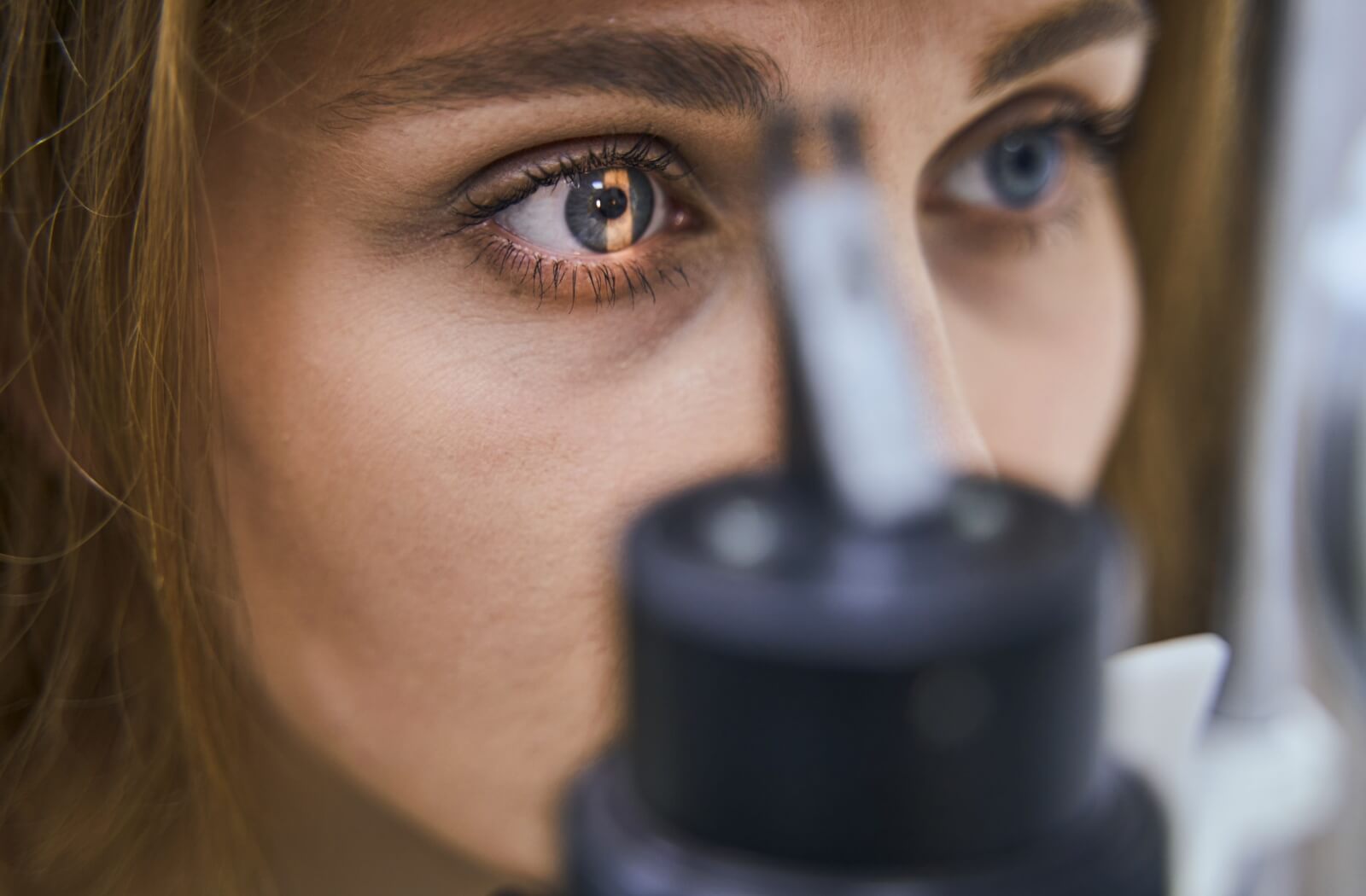Partnering with Local Surgeons
People who wear contact lenses and glasses have probably wondered what life would be like without them. If you count yourself among those people and are looking to decrease your reliance on corrective lenses, laser eye surgery can help.
We’re proud to partner with Horizon Laser Vision Center by offering our patients consultation exams as the first step in their laser eye surgery journey. We can assess your suitability for several major refractive surgery procedures, including LASIK, SMILE, and Presbyond.
Start waking up with clear vision every day—book your laser eye surgery consultation with us today.

What Is Laser Eye Surgery?
Laser eye surgery, also known as refractive surgery, is the term used to describe surgical procedures that correct common vision problems with the help of a laser.
Many types of refractive errors can be improved through the surgical reshaping of the cornea. It’s your cornea that refracts (bends) incoming light onto the retina, and if that light isn’t focused directly, you may have blurry vision.
Most types of laser eye surgery reshape your cornea to change the way light is focused on your retina and improve your eyesight.
To see if laser vision surgery is right for you, book a consultation today.
Am I a Candidate for Laser Eye Surgery?
There are many factors that play a role in your suitability for laser eye surgery. Your optometrist will conduct a thorough eye exam and assess your health history to determine if you are a good candidate.
In general, for most types of laser eye surgery, there are a few conditions that need to be met:
- You will need to be over the age of 18.
- Severe dry eye will need to be dealt with prior to surgery.
- Your current prescription must be stable.
- You should be free from active infection.
- Your overall general health should be good.
- Glaucoma and cataracts may make you ineligible.
To see if you are a candidate for laser eye surgery, and to explore which type of surgery might be best for you, book a consultation today.
What Types of Laser Eye Surgery Are Available?
There are several types of laser eye surgeries. Certain procedures are better suited to some conditions and lifestyles. Your optometrist will go through the options with you and determine which type will produce the best possible results.
LASIK
LASIK (laser-assisted in situ keratomileusis) involves the creation of a small flap in the corneal tissue.
While the flap is bent back, your surgeon will reshape your cornea. This flap will then be replaced and will heal on its own.
PRK
SMILE
Small Incision Lenticule Extraction (SMILE) is a minimally invasive laser eye surgery designed by ZEISS. It may be an option for people with myopia or astigmatism. Your surgeon creates a small, lens-shaped piece out of your corneal tissue, and then removes it through an incision. Doing so reshapes the cornea without scalpels.
Presbyond
PRESBYOND is best for patients with presbyopia, a vision condition that occurs as you age. The eye’s lens loses elasticity as people age, making focusing difficult.
PRESBYOND works in a similar fashion to LASIK, but is less invasive due to the smaller incision.
What Will My Vision Be Like After Surgery?
Just like any surgical procedure, there are risks involved in laser eye surgery. During a consultation, prior to any surgical intervention, we will thoroughly discuss those risks with you.
Many people achieve 20/20 vision after their procedure, but some people continue to need corrective lenses post-surgery. If you have a high prescription before surgery, you may never be able to completely stop wearing glasses or contact lenses, but the procedure can decrease your reliance on these items.
It is important to us that you have realistic expectations. We will assess your specific situation and prepare you for possible outcomes. You will always get an honest evaluation at Advance Eye Care Center.
OUR LOCATION
Visit Advance Eye Care Center in Regina, for all your eye care needs. We offer a number of services, including:
- Adult & Senior Eye Exams
- Children’s Eye Exams
- Diabetic Eye Exams
- Dry Eye Therapy
- Eye Disease Diagnosis & Management
- Trigeminal Dysphoria Treatment
- And more!
Interested in our services? Book an appointment below.
AECC Regina
- 3617B Pasqua Street
- Regina, SK S4S 6W8
Hours of Operation
- Monday: 8:00 AM – 5:00 PM
- Tuesday: 8:00 AM – 5:00 PM
- Wednesday: 8:00 AM – 5:00 PM
- Thursday: 8:00 AM – 8:00 PM
- Friday: 8:00 AM – 5:00 PM
- Saturday: 8:00 AM – 1:00 PM
- Sunday: Closed
*in July and August we are closed on Saturdays and open 8:00 AM – 5:00 PM on Thursdays
Our Brands



See Our Google Reviews
Our Blog
What Diseases Can Be Detected in an Eye Exam?
Eye Diseases, Eye Exams, Eye HealthComprehensive eye exams can feel like unneeded healthcare when you don’t have vision problems. However, they are so much more than simple vision screening – your optometrist can detect early signs of diseases like age-related macular degeneration, cataracts, glaucoma, diabetes and more during a comprehensive eye exam. Many eye diseases progress slowly, with no pain […]
Is Blepharitis Contagious?
Eye Conditions & Treatments, Eye HealthBlepharitis is not contagious. However, a flare-up can be annoying and cause discomfort. Fortunately, there are several ways to manage and prevent blepharitis flare-ups. […]
Can Myopia Be Cured?
Children’s Eye Care, Myopiaexpected. People often wonder: can myopia be cured? While a complete cure isn’t currently available, there are many ways to manage myopia effectively. […]
What Diseases Can Be Detected in an Eye Exam?

Comprehensive eye exams can feel like unneeded healthcare when you don’t have vision problems. However, they are so much more than simple vision screening – your optometrist can detect early signs of diseases like age-related macular degeneration, cataracts, glaucoma, diabetes and more during a comprehensive eye exam. Many eye diseases progress slowly, with no pain […]
Is Blepharitis Contagious?

Blepharitis is not contagious. However, a flare-up can be annoying and cause discomfort. Fortunately, there are several ways to manage and prevent blepharitis flare-ups. […]
Can Myopia Be Cured?

expected. People often wonder: can myopia be cured? While a complete cure isn’t currently available, there are many ways to manage myopia effectively. […]


